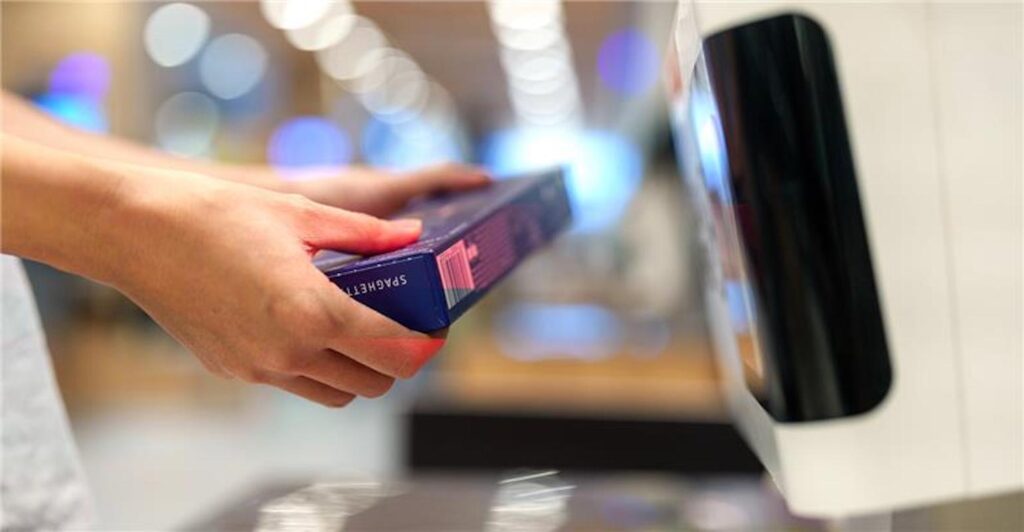Grocers are taking a second look at self-checkout and whether it’s a viable option. What’s driving this? Shrink inflation has been on the rise and grocers have also lost some control over tracking inventory.
I personally don’t think self-checkout is going away, but we are seeing some big shifts from grocers in this department. Let’s take a look.
Here are some recent developments: Both Schnucks and Target have limited the item count to 10 or less in the self-checkout line. Why? Shrink inventory has been a nasty pest over the past year, and it appears some of that theft is happening when shoppers “forget” to scan items. Late last year, Kroger began leaning on AI to ensure that items in the cart make it through the scanner and into the bag.
Dollar General CEO Todd Vasos took it a step further during the discount grocer’s recent financial earnings call. Vasos said the retailer was going to cut back on self-checkout, saying stores relied too much on it in 2023 and that self-checkout should be a secondary, not primary, checkout option.
Dollar General, which actually experimented with an all self-checkout store this past year, will also be investing $50 million additional dollars into labor this year to get more workers in the store and assisting shoppers.
In late September, Walmart suddenly pulled self-checkout kiosks from two stores in Albuquerque, N.M. I reached out to the Bartonville, Ark.-based retailer about the move, and, according to a statement from Walmart:
“While there is no single reason for these decisions, we continually look at ways to provide our customers with the best shopping experience possible and that includes adjusting the checkout area in stores. There are no current plans for self-checkout removals nationwide.”
Costco has also changed up its self-checkout areas. Now there is an extra worker to make sure shoppers’ IDs match their membership card.
In a recent Supermarket News LinkedIn poll, we asked: Do you think grocers will continue to lean on self-checkout, or will the strategy change?
Sixty percent said yes, they will continue to lean, while 38% said no, changes are coming.
Jerry Wagner, a senior advisor at Coast Produce, said, “Too many grocery stores currently have self-checkout and their aisles are congested with employees pulling product for pickup for customers. The worst of both worlds. The next logical move in my opinion is to automate selection for all product where the customer either pre-orders or uses a kiosk to place orders. Stores will actually be warehouses with small storefronts to pick up orders. Large chains could return to the food deserts and find the other locations where this format is the most practical while providing some stores with the “shop the aisles” experience for those who wish to.”
Matt Gorman from CEM said, “For the foreseeable future, there seems to be a place for a brick-and-mortar presence where people can go and pick their own produce, meats, etc., so scan and go / scan as you go shopping of whatever sort will be a burgeoning market above and beyond the self-checkout and/or the traditional checkout as an exponentially accepted and or preferred method for grocery shopping.”
Recent research indicates that shoppers gravitate towards self-checkout now more than ever before.
In a recent survey, digital commerce solutions provider NCR Voyix Corporation asked consumers questions around how their dining and grocery choices fuel convenience purchase behaviors.
The survey results indicate that self-checkout is gaining in terms of preference, with 43% of shoppers saying they would rather handle the transaction on their own vs. traditional checkout, with 53% of consumers aged 18 to 44 choosing self-checkout.
“Self-checkout is evolving to offer a quicker and more user-friendly experience,” said David Wilkinson, NCR Voyix CEO. “The reality is shoppers want more control over their checkout experience and self-checkout delivers that flexibility.
“For retailers, self-checkout enhances operational efficiency in a time when many are struggling to retain staff and are combatting unprecedented levels of shrink.”
Unprecedented levels of shrink could be the exact reason why many retailers are taking a second look at the heavier reliance on self-checkout.
According to a LendingTree survey of 2,000 U.S. consumers, 31% of Gen Z shoppers, the same generation who said they prefer self-checkout in the NCR Voyix survey, have admitted to shoplifting from the self-checkout aisles, compared to just 15% of shoppers overall. Furthermore, 46% of Gen Zers who were questioned by LendingTree said they choose the most expensive item in their grocery shopping cart to steal.
I talked to someone on the CPG side of things and he said the self-checkout craze from grocery retailers is pretty much over and the reality of the option has settled in, like increased shrinkage, fewer last-minute buys, and unchanged labor costs.
He believes self-checkouts still remain a vital component of the retail landscape, but grocers are starting to modify their strategy.
I personally believe technology is going to be the cure-all for grocery retailers when it comes to self-checkout. Because the bottom line is this: Self-checkouts are essential in the supermarket arena because the workers (and especially the quality of workers) simply have not come back following the COVID-19 pandemic.
So while the knee-jerk reaction to the spike in shoplifting is to pull out self-checkout lanes, in the end, it’s my opinion that retailers will settle back and offer double the self-checkouts versus traditional checkouts. Self-checkout isn’t checking out anytime soon.


